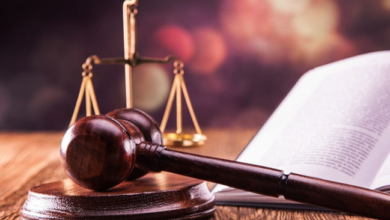What You Need To Know About Brasília Law

Brasília, the capital city of Brazil, is not only known for its stunning architecture and rich culture, but also for its unique legal system. As the seat of government and the center of political power in Brazil, Brasilia plays a crucial role in shaping the country’s laws and policies.
In this section, we will provide a comprehensive introduction to Brasilia law – its history, sources, and principles. Whether you are a legal professional or simply curious about how the Brazilian legal system works, this overview will give you a better understanding of Brasilia law.
History of Brasilia Law
Brasilia Law has a rich and complex history that has shaped the current legal system of Brazil’s capital city. The roots of Brasilia Law can be traced back to the early 19th century when Brazil was still a Portuguese colony.
During this time, the laws in Brazil were heavily influenced by Portugal’s legal system, which was based on civil law principles. However, as Brazil gained independence in 1822, there was a growing need for a distinct legal framework that would govern the newly formed nation.
In 1824, Brazil adopted its first constitution, known as the Imperial Constitution. This document established the basis for Brazilian law and created a separate judicial system from that of Portugal. It also introduced several significant changes to the country’s legal system, including granting more autonomy to provincial courts and establishing elected municipal judges.
Throughout the 19th century and into the early 20th century, various codes were created to regulate different areas of law in Brazil. These included criminal codes, commercial codes, and procedural codes. However, it wasn’t until 1930 that Brasilia Law began to take shape with the establishment of two bodies: The High Court of Justice and The Superior Court of Justice.
The High Court of Justice acted as Brazil’s highest court at this time and had jurisdiction over all federal cases. On the other hand, The Superior Court of Justice served as an appeals court for state-level cases.
Key Principles and Concepts of Brasilia Law
The legal system of Brasilia, the capital city of Brazil, is based on the principles and concepts outlined in its constitution. These principles serve as the foundation for the country’s laws and regulations, shaping how justice is administered and upheld in Brasilia.
Some key principles that guide Brasilia’s legal system include:
1. Separation of Powers: Similar to most democratic countries, the Brazilian Constitution establishes a clear separation of powers between the executive, legislative, and judicial branches. This principle ensures that no single branch has too much power and that each branch acts as a check and balance on the others.
2. Federalism: Brazil is a federal republic with three levels of government – federal, state, and municipal. The constitution clearly defines the powers and responsibilities of each level of government to avoid any confusion or overlap.
3. Social Justice: The principle of social justice plays a significant role in Brasilia’s legal system. It aims to promote equal rights and opportunities for all citizens regardless of their race, gender, religion or socioeconomic status.
4. Human Dignity: The Brazilian Constitution places great emphasis on protecting human dignity, which is considered an essential value in society. This principle guides decisions made by judges when interpreting laws related to fundamental human rights.
5. Public Interest: Another crucial principle in Brasilia law is public interest or “interesse público” in Portuguese. This concept means that decisions made by public officials must prioritize what is best for society as a whole rather than individual interests.
The Legal System in Brasilia
The legal system in Brasilia is a complex and intricate system that plays a crucial role in governing the city. As the capital of Brazil, Brasilia has its own unique set of laws and regulations that differ from other cities in the country. In this section, we will explore the key components of the legal system in Brasilia and provide insights into how it operates.
Types of Courts:
Brasilia’s legal system is composed of several different types of courts, each with its specific jurisdiction and responsibilities. The highest court in Brasilia is the Supreme Federal Court (STF), which serves as the final arbiter for issues related to federal law. Below it is the Superior Court of Justice (STJ), which has jurisdiction over non-constitutional federal laws. There are also several regional federal courts that handle cases at a state level.
In addition to these federal courts, there are also state courts that deal with matters related to state laws. These include civil courts, criminal courts, labor courts, electoral tribunals, and military justice tribunals. The diversity of these courts reflects the various aspects of governance and their respective areas of expertise.
Legal Codes:
The Brazilian legal system is based on civil law principles derived from Portuguese, French, Italian and German law codes. This means that judges must primarily rely on written statutes rather than case law when making decisions.
Important Laws and Regulations in Brasilia
Brasilia, the capital city of Brazil, is home to a complex and comprehensive legal system. The laws and regulations in Brasilia are crucial for maintaining social order and ensuring the well-being of its citizens and visitors. As a foreigner or even a local resident, it is important to have a basic understanding of the key laws and regulations in Brasilia to avoid any legal complications.
1. Constitution:
The Brazilian Constitution serves as the supreme law of the country and provides the framework for all other laws in Brasilia. It guarantees fundamental rights such as equality, freedom of speech and religion, education, health care, among others. The Constitution also outlines the powers and responsibilities of the federal government, states, municipalities, and citizens.
2. Civil Code:
The Civil Code governs civil relationships between individuals such as marriage, divorce, inheritance, contracts, property ownership, etc. It is based on Roman law principles and has been continuously updated to reflect modern society’s needs.
3. Criminal Law:
Criminal offenses are regulated by the Brazilian Penal Code which defines crimes against individuals (such as murder or assault), public order (such as rioting or disturbing peace), property (such as theft or vandalism) among others. Punishments range from fines to imprisonment depending on the severity of the offense.
How to Navigate the Legal System in Brasilia
Navigating the legal system in Brasilia, the capital city of Brazil, can be a daunting task for both locals and foreigners. With its complex bureaucracy and unique legal processes, it is important to have a clear understanding of how the system works in order to successfully navigate it. In this section, we will provide you with key insights and tips on how to effectively navigate the legal system in Brasilia.
1. Familiarize Yourself with Brazilian Law
The first step in navigating the legal system in Brasilia is to familiarize yourself with Brazilian law. This includes understanding the country’s federal laws, as well as any state or local laws that may apply to your case. It is also important to know which courts have jurisdiction over different types of cases.
2. Seek Legal Assistance
If you are facing a legal issue in Brasilia, it is highly recommended to seek professional legal assistance from a lawyer who specializes in Brazilian law. They will not only guide you through the legal process but also ensure that all necessary documents and procedures are properly completed.
3. Understand Court System Hierarchy
In Brazil, there are different levels of courts including federal courts, state courts, and municipal courts. Each court has its own specific jurisdiction and handles different types of cases. It is essential to understand this hierarchy so that you can file your case at the appropriate level.
Common Misconceptions about Brasilia Law
There are several common misconceptions about Brasilia law that often lead to confusion and misunderstandings. In this section, we will address and debunk these misconceptions to provide a clearer understanding of the legal system in Brasilia.
All laws in Brazil apply in Brasilia
One of the most common misconceptions about Brasilia law is that all laws in Brazil apply in the capital city. While this may seem logical, it is not entirely true. Brasilia has its own set of laws and regulations that may differ from other parts of Brazil. The Federal District, where Brasilia is located, has its own legislative assembly responsible for creating laws specifically for the city.
The legal system in Brasilia is based on Portuguese law
Another common misconception is that the legal system in Brasilia is solely based on Portuguese law since Brazil was colonized by Portugal. However, Brazilian law has evolved over time and combines elements from various legal systems, including Roman civil law, French civil code, and canon law.
Only Brazilian citizens can practice law in Brasilia
It is a widespread belief that only Brazilian citizens can practice law in Brasilia. However, foreign lawyers can also practice under certain conditions. They must register with the Brazilian Bar Association (OAB) and pass an exam equivalent to the one taken by Brazilian lawyers.
Recent Changes and Updates in Brasilia Law
Brasilia, the capital city of Brazil, has a unique legal system that is constantly evolving to meet the needs and challenges of its residents. In recent years, there have been several changes and updates to laws and regulations in Brasilia that have had a significant impact on the lives of its citizens. In this section, we will discuss some of the most notable changes and updates in Brasilia law.
Anti-Corruption Measures
Brazil has long struggled with corruption at all levels of government, and Brasilia is no exception. In an effort to combat this issue, the Brazilian Congress passed a landmark anti-corruption law in 2013 known as the Clean Company Act. This law imposes strict penalties for companies found guilty of corrupt practices, including fines up to 20% of their gross revenue.
In addition, Brasilia also established a specialized court for handling corruption cases at both federal and state levels. This has resulted in increased efficiency in prosecuting corrupt officials and individuals involved in illegal activities.
Labor Reforms
In 2017, Brazil implemented sweeping labor reforms aimed at modernizing its labor laws and stimulating economic growth. These reforms include changes such as allowing companies to negotiate directly with employees rather than through unions, reducing mandatory vacation time from 30 days to 20 days per year, and increasing flexibility for remote work arrangements.
Why Understanding Brasilia Law is Important
In this article, we have discussed various key facts and insights about Brasilia law. But why is it important for us to understand the laws in this city? In this final section, we will explore the significance of understanding Brasilia law and how it can benefit individuals and businesses.
Compliance with Laws
First and foremost, understanding Brasilia law is crucial for compliance purposes. Just like any other city or country, Brasilia has its own legal system that governs the rights and responsibilities of its citizens. By being familiar with these laws, individuals and businesses can ensure that they are following all the necessary regulations and avoid any potential legal repercussions.
Protecting Your Interests
Knowledge of Brasilia law can also help protect your interests in various legal matters. Whether you are a resident or a business owner in the city, having a good understanding of local laws can give you an advantage when dealing with legal issues such as contracts, property ownership, or employment disputes.
Avoiding Legal Troubles
Being aware of Brasilia law can also save you from unnecessary legal troubles. Ignorance of the law is not an excuse for committing a violation, so it’s essential to be informed about your legal rights and obligations in order to avoid any unintentional illegal actions that could lead to penalties or fines.




